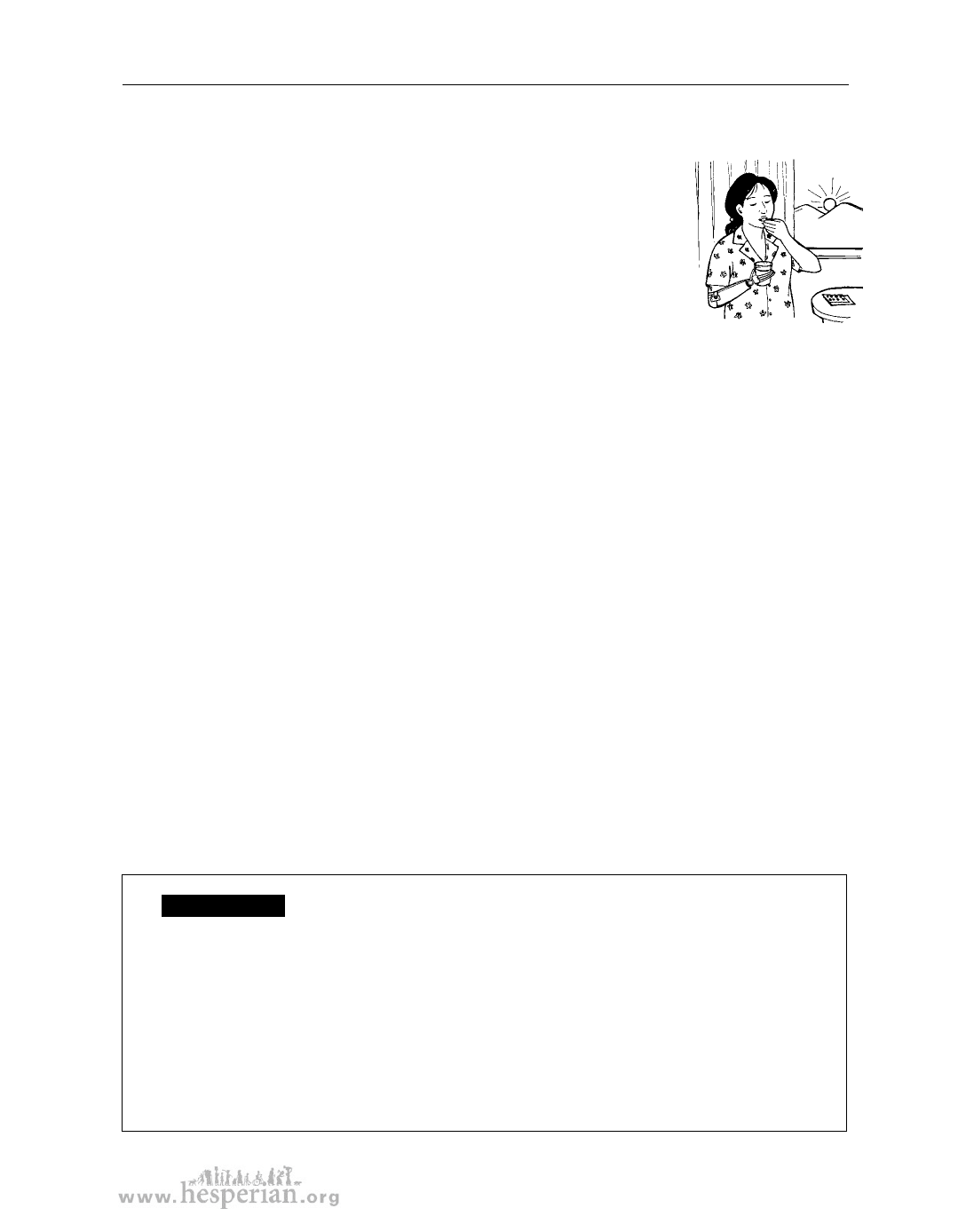
Hormonal methods of family planning 197
Birth control pills (oral contraceptives or “the pill”)
If you decide to take birth control pills, they should be
“low-dose.” That means they should have 35 micrograms (mcg)
or less of estrogen, and 1 milligram (mg) or less of progestin. Do
not use pills with more than 50 mcg of estrogen. There are many
different brands of birth control pills (see page 355 to 356).
Taking a birth control pill at the same time every day is
one of the most effective ways to avoid pregnancy. There is an
increased chance of pregnancy if you forget to take even a single
pill. As a rule, women who take birth control pills have lighter monthly bleeding.
This may be a good thing, especially for women who have a difficult time managing
their monthly bleeding. If you have trouble swallowing pills, they can be ground up
in water or some other liquid, and swallowed through a straw.
Pills come in packets of 21 or 28 tablets. You should take the first pill in a packet
on the first day of your monthly bleeding. If that is not possible, take the first pill
any time in the first 7 days after you start your monthly bleeding. If you are using a
21-day packet, take one pill every day for 21 days. Then wait 7 days before starting
a new packet. Usually, you will start your monthly bleeding after the 21st day. But
even if you do not, start a new packet in 7 days. If you are using a 28-day packet,
take one pill every day. As soon as you finish one packet, begin taking a new one.
If you vomit within 3 hours after taking your pill, or have severe diarrhea, your
birth control pill will not stay in your body long enough to work well. Use condoms,
or do not have sex, until you are well and have taken a pill each day for 7 days.
The combined pills (estrogen and progesterone) start to prevent pregnancy
within 2 weeks, if you start taking them the first day of your monthly bleeding.
Progestin-only pills will not prevent pregnancy for the first 4 weeks you take them.
So you will need to use condoms or another method of family planning, or you
may become pregnant.
WARNING! If you are taking pills and you get any of these signs, get
medical advice right away:
• chest pain and shortness of breath
• strong headaches
• numbness in your arms or legs
• strong pain or swelling in one leg
These are signs that you may have a blood clot inside your body that is
preventing the blood from flowing to your lungs, chest, brain, or arm or leg.
A Health Handbook for Women with Disabilities 2007